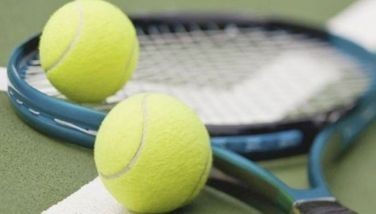SEA Games sacrifice
PALEMBANG, Indonesia – By the time you read this, the 26th Southeast Asian Games would have formally opened in this sweltering city, as well as the country’s capital, Jakarta. Eleven nations will be seeing action, thrown together by his biennial competition.
Thursday, the main bulk of the delegation left Manila, and it was an arduous journey, even for Philippine Olympic Committee president Jose Cojuangco Jr. and Philippine Sports Commission chair Ricardo Garcia and certain members of the media. It was also a stiff reminder of how hard the life of an athlete is, indeed. It was a challenging day for three-fourths of the almost 200 delegates who were heading to this southern Sumatran city.
The seven-man squad of the Petanque Association of the Philippines, Inc. (PAPI) is one such example of this kind of sacrifice. The team left Angeles Sports and Country Club in Pampanga at 8 in the morning, and spent two and half hours on the road and through unfamiliar Metro Manila traffic to rendezvous with this writer, who also serves as PAPI’s secretary-general. Then, another hour and a half of painfully slow traffic, heat and smog to get to the Ninoy Aquino International Airport, where agents of Northstar Travel distributed our tickets and bag tags, and shepherded us through ticketing, which in itself took more than an hour.
By the time the athletes’ processing through travel tax, immigration and customs was done, it was past 1 p.m., less than an hour before the scheduled 2:15 p.m. departure via Singapore Airlines. The athletes hadn’t eaten, and practically inhaled the overpriced airport fastfood. There were still other concerns to be addressed when the group arrived in Indonesia, such as completing their accreditation. The IDs sent to the SEA Games secretariat in Manila were incomplete.
In the meantime, the aircraft bound for Singapore, half-filled with our athletes, was held up by the long line of flights waiting to take off. Eventually, we were on our way to the first destination of the day. The in-flight meal was warm and welcome. But the aircraft was asked to circle around Changi airport a few times because of the weather. Half an hour after the scheduled arrival, we finally landed.
Next came the long walk to the other end of Changi’s terminal 2. Even with the aid of four walkalators, it still took the weary pack 20 minutes to make it all the way around the airport. The group boarded the chartered flight on time, but had to wait as another group of Filipino athletes were held up on their own connecting flight via another airline. It was already dinnertime when we left Changi.
An hour and a half later, we screeched onto Palembang Airport’s runway, but that was not the end of the story. We were herded into a waiting area, while many of us, included members of the print media, had to settle their ID problems. One group was missing 19 of its 44 identification cards, even though each team had submitted its requirements as a group. Our petanque delegation of eight was missing two accreditations. That took another hour. Thankfully, the Philippine SEA Games secretariat was here to come to our aid.
Immigration went by quickly, as did the baggage claim. Our weary travellers were then guided through a reception tent, and waited again for our transportation to the athletes’ village, dubbed “Sports City”. We got conflicting answers to how long this last bit of travel would take. With the unruly traffic here, it took almost an hour. We tried to entertain ourselves with all the billboards announcing the Games, symbolized by mascots Modo and Modi, the male and females homages to the indigenous Komodo dragon.
Finally, we were at the athletes’ village, lugging our huge gym bags down the paths to our designated building. But they weren’t finished with us yet. We had to wait another half hour for our assigned rooms, the policy was six persons per room, and we had four men and four women in our group. Eventually, we trudged upstairs, exhausted, our bags already worn from being pulled through the last leg of our gauntlet. Let them divide who to toss in with us. Each building was four floors, actually a skeleton with only the bathrooms completely concrete. Walls were plastic, slapped into place. Each room had only one toilet and shower for sharing. We no longer cared. It was almost midnight, Manila time, 11 p.m. here in Palembang. Our petanque team had taken 16 hours just to get here.
Needless to say, the athletes were hungry, as athletes always are so a late dinner was in order, taking us to 1 a.m. In less than four hours, some of our undaunted athletes were already out for their morning jogs and stretching. They had come too far to relax now.
It sort of gives you a deeper appreciation of what it takes to win a gold medal for the country, at any level.
* * *
The Bostik World Arnis Open takes place from Nov. 18-20 at the SM Fairview annex. Over 300 athletes from at least seven countries are expected to enter. The Philippines is protecting a sweep of last year’s maiden edition of the event, as the teams from France, Australia and a few other foreign athletes are already in town for final preparation and training. The World Arnis Open is sponsored by the Quezon City government through Vice Mayor Joy Belmonte, Stix and Smart.
- Latest
- Trending


























